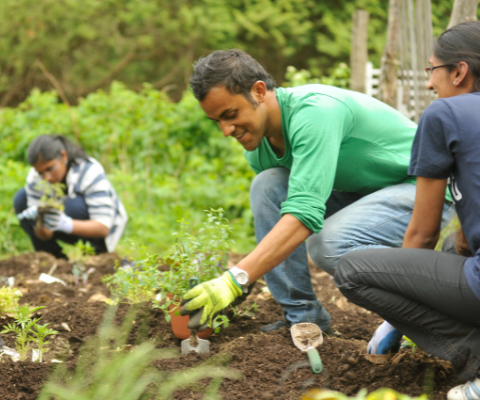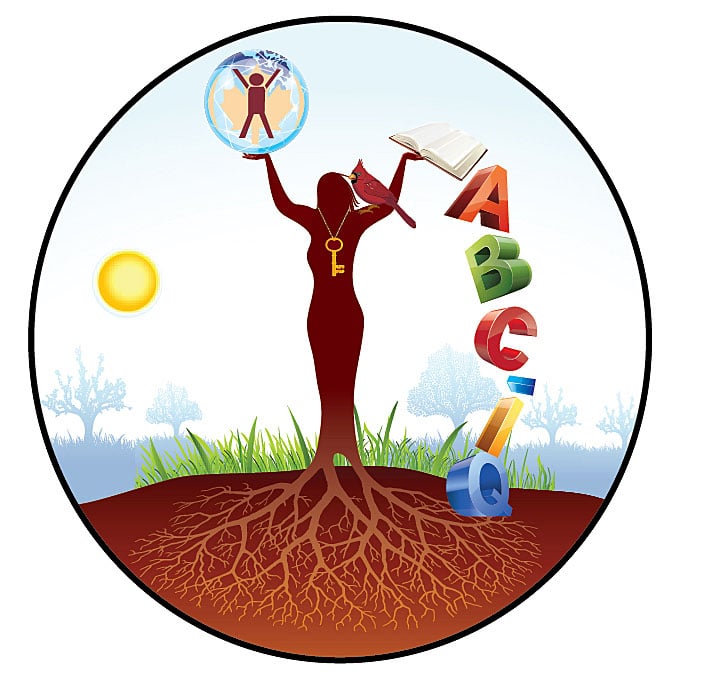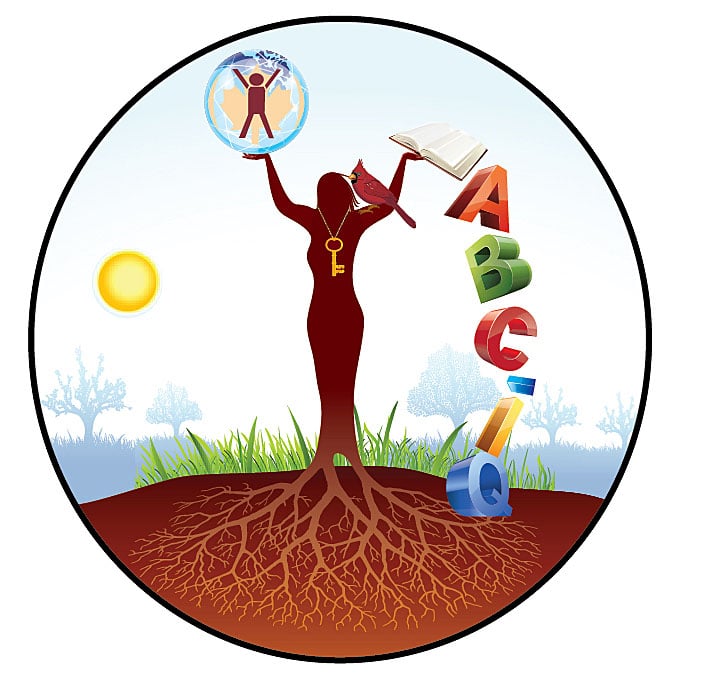Compliance Universities Canada

Universities Canada defines the term social impact as the positive outcomes of initiatives that tackle social, economic, environmental and cultural challenges faced by people, organizations and communities. The concept goes beyond the academic mission to encompass all aspects of the institution, including financial activities, physical spaces, research activities, teaching and learning, equity, diversity and inclusion, reconciliation and mental health and wellness.
Canada’s universities are dedicated to improving and enriching the lives of Canadians by working as connectors and catalysts, bringing together stakeholders from communities, other educational institutions, governments, and the private sector in Canada and around the world to create positive change. They have a central role to play in tackling both local and global challenges to foster a resilient and equitable future. Strong communities are the driving force of a sustainable society and a crucial part of achieving the United Nations Sustainable Development Goals.
To this end, the members of Universities Canada commit to the following eight social impact principles. They complement Universities Canada’s Principles on Indigenous Education and Inclusive Excellence Principles. Together, these three sets of principles address the responsibilities at the forefront of the higher education sector today and for the next decade.
These principles acknowledge the differences between university communities across Canada and the autonomy of individual institutions to advance change appropriate to local context and needs.
- Local communities: We believe our universities are enriched and influenced by, and depend upon, our local communities. We commit to equitable engagement and building strong relationships with our communities based on the foundational values of respect, reciprocity, transparency and openness, diversity, inclusion and reconciliation.
- Engaged learning: We commit to create opportunities for more engaged teaching and learning by developing initiatives that have a positive impact on the community, enhance students’ learning and engagement skills, and overall foster the value of mutually beneficial partnerships.
- Community-driven research: We recognize the importance of supporting community-driven approaches where communities are equal and active partners in the research process.
- Knowledge exchange: We know that all communities have expertise and assets, and we recognize the value of Indigenous knowledge and lived expertise. We commit to increasing the multi-directional flow of knowledge and insight between universities and local and First Nations, Métis and Inuit communities.
- Recognition: We believe the community engagement work of staff and faculty should be recognized and incentivized through recruitment, promotion and retention processes. Likewise, we believe the work of community partners should be recognized and supported.
- Assets: We believe we have untapped assets and resources we can mobilize to accelerate solutions to a sustainable future and commit to harnessing them for social impact, for example, through investment, procurement, administrative hiring, real estate development, and increasing access to facilities and technologies.
- Governance: We believe our governance systems need to demonstrate our social impact principles, and social impact should be embedded in our missions, visions, values, strategic plans, and governance structures.
- Reporting: We believe in the importance of tracking and reporting on our social progress and commit to working together to share progress and refine our methods.
University Policy: Principles on equity, diversity and inclusion
Canadians value an inclusive country, where equity is deeply embedded and diversity welcomed. Our identity is expressed in the shared values of openness, fairness and tolerance.
Members of Universities Canada reflect those values in their approaches to teaching, research and community engagement. Universities recognize the vital importance of a diversity of identity and thought, with room for a variety of ideas, geographies, cultures and views. While progress has been made over the past few decades, we recognize that there is more we can – and must – do to truly achieve inclusive excellence.
To complement Universities Canada’s members of Universities Canada commit to attracting and retaining students, faculty, staff and leaders from all backgrounds. To serve their missions, our university leaders commit to being active champions of equity, diversity and inclusion on our campuses, in our communities and across the country.
To this end, the members of Universities Canada make an explicit public commitment to seven principles. These principles acknowledge the differences between university communities across Canada and the autonomy of individual institutions to advance change appropriate to local context and needs.
- We believe our universities are enriched by diversity and inclusion. As leaders of universities that aspire to be diverse, fair and open, we will make our personal commitment to diversity and inclusion evident.
- We commit our institutions to developing and/or maintaining an equity, diversity and inclusion action plan in consultation with students, faculty, staff and administrators, and particularly with individuals from under-represented groups [1]. We commit to demonstrating progress over time.
- We commit to taking action to provide equity of access and opportunity. To do so, we will identify and address barriers to, and provide supports for, the recruitment and retention of senior university leaders, university Board and Senate members, faculty, staff and students, particularly from under-represented groups.
- We will work with our faculty and staff, search firms, and our governing boards to ensure that candidates from all backgrounds are provided support in their career progress and success in senior leadership positions at our institutions.
- We will seek ways to integrate inclusive excellence throughout our university’s teaching, research, community engagement and governance. In doing so, we will engage with students, faculty, staff, our boards of governors, senates and alumni to raise awareness and encourage all efforts.
- We will be guided in our efforts by evidence, including evidence of what works in addressing any barriers and obstacles that may discourage members of under-represented groups to advance. We commit to sharing evidence of practices that are working, in Canada and abroad, with higher education institutions.
- Through our national membership organization, Universities Canada, we will work to generate greater awareness of the importance of diversity and inclusive excellence throughout Canadian higher education.
[1] Under-represented groups include those identified in the federal Employment Equity Act – women, visible minorities, Aboriginal peoples, and persons with disabilities – as well as, but not limited to, LGBTQ2+ people and men in female-dominated disciplines as people.
Commitment to Truth and Reconciliation
Universities Canada and its member institutions are located on Indigenous lands home to diverse First Nations, Inuit and Métis Peoples. Universities recognize the self-determination of Indigenous Peoples and strive to affirm and respect inherent and Indigenous rights and the treaties that govern these lands. Relationships with Indigenous Peoples are an important source of strength and knowledge that make universities in Canada unique in the world.
Universities Canada is a membership association that supports the presidents of over 90 public and non-profit universities in Canada. We advocate to the federal government on behalf of universities and convene university presidents to discuss issues of importance to their institutions. University education for Indigenous students and advancing reconciliation with Indigenous Peoples at universities in Canada are core priorities for our member institutions and our organization.
Universities recognize their responsibility in reconciliation, in creating respectful partnerships with First Nations, Inuit and Métis Peoples, in breaking down the barriers to university education faced by Indigenous students, in providing equitable employment opportunities for Indigenous faculty and staff, and centering the needs of Indigenous Peoples in teaching and research. The commitments below constitute a living document, now titled Commitments to Truth and Reconciliation, that serves to update the Principles on Indigenous Education first adopted by Universities Canada members in 2015.
The commitments seek to respond to the evolving context of truth and reconciliation in Canada and serve as a forward-looking document to guide and support the work of universities. The development of the commitments has been informed by consultations with Universities Canada’s advisory group on Indigenous higher education, Indigenous leaders across universities, and Indigenous communities and organizations, and these groups and individuals, as well as others, will continue to be engaged as the commitments evolve.
Actualizing the Commitments to Truth and Reconciliation will be an ongoing effort of Canadian universities for years to come, and the commitments serve as one tool to guide Canadian universities in this work. In addition to these commitments of our members, Universities Canada commits to supporting members in their work through convening dialogues of university leaders, sharing best practices, and advocating for more resources for Indigenous students and researchers. Universities Canada also commits to supporting distinct but complementary work to advance equity, diversity and inclusion, recognizing intersectionality of Indigenous identities. Universities Canada commits to supporting the commitments below in coordination with the association’s other Principles including the Inclusive Excellence Principles, Social Impact Principles and Institutional Autonomy Principles.
Commitments
The commitments below are in no particular order, and each is considered of equal priority in this document.
Policies, strategic plans and governance
Universities commit to advancing truth as a step toward reconciliation. This includes acknowledging their role in colonialism and the legacy of residential schools in education in Canada. Universities affirm their commitment to supporting the implementation of the Truth and Reconciliation Calls to Action; Calls for Justice from the National Inquiry into Missing and Murdered Indigenous Women, Girls and 2SLGBTQQIA people; the United Nations Declaration on the Rights of Indigenous Peoples; the recommendations of the Royal Commission on Aboriginal Peoples; and provincial commissions and reports regarding Indigenous peoples and their rights.
Universities commit to developing opportunities for Indigenous students, faculty, researchers, staff and leaders at every level of the institution through governance structures, policies, and strategies that respect and make space for Indigenous expertise, Knowledges and cultures.
Universities acknowledge systemic anti-Indigenous racism and oppression and commit to building welcoming and respectful campus environments through things such as the implementation of mechanisms to address racism and racist incidents, as well as academic programs, services, supports and spaces dedicated to Indigenous students, faculty and staff.
Indigenous student success
Universities commit to a strengths-based, student-centered approach to promoting Indigenous student success including a focus on the learners, learning outcomes and learning abilities, holistic student supports including personal, academic and cultural supports, as well as supporting the Indigenous staff and faculty who act as champions and role models for Indigenous students.
Teaching and learning
Universities commit to supporting the Indigenization of curricula through things such as responsive academic programming, support programs, orientations, and pedagogies and to making room for Indigenous Knowledges and ways of knowing throughout diverse fields of study, including opportunities for Elders and Knowledge Keepers in university structures.
Universities commit to supporting resurgence of Indigenous languages through things such as working with First Nations, Inuit and Métis Peoples, Elders, and Knowledge Keepers to offer accessible language courses and programs.
Research
Universities commit to developing research partnerships with First Nations, Inuit and Métis communities, post-secondary institutions and organizations that centre Indigenous needs through respectful, mutually beneficial, and collaborative relationships and appropriate protocols throughout the research process.
Community engagement
Universities commit to developing reciprocal relationships of accountability with the First Nations, Métis and Inuit communities and organizations they serve, in the spirit of co-creation, to ensure programming and resources meet Indigenous needs, promote partnerships with Indigenous post-secondary institutions, and facilitate outreach to Indigenous youth and prospective students.
Universities commit to developing accessible community-based learning opportunities that serve the needs identified by First Nations, Inuit and Métis Peoples and allow students to remain connected with their families, communities, and cultures.
Supporting people
Universities commit to supporting Indigenous-led resurgence and revitalization and to improving representation of Indigenous talent at the governance level and among faculty, professional and administrative staff. Acknowledging the additional stressors and duties often asked of Indigenous faculty and staff, universities commit to providing supports, resources and recognition to ensure the advancement and retention of those staff.
Universities commit to ensuring that non-Indigenous students, faculty, staff and leadership have the training and resources they need to uphold their responsibility to work towards reconciliation and decolonization across their institutions.
Commitments to Canadians - University Policy Canada

We live in a world where fulfillment depends less upon what we know, and more upon what we can learn, how we think, and how we respond to what the world calls upon us to do. As centres of learning and discovery, universities play a crucial role in the preparation of one’s capacity to give back, collaborate and initiate positive change. Universities transform the lives of individuals, who in turn transform our world.
The following commitments of Canada’s universities were launched in October 2021:
Serving all Canadians
We prepare all students with the knowledge and competencies they need to succeed in work and life, empowering them to contribute to Canada’s social, economic, and cultural vitality.
Canada’s future will be shaped by the educational experiences of today’s students. Universities commit to improving accessibility to higher education for all Canadians. We will work with partners to address barriers to access and support student success at university.
Pursuing excellence
We pursue excellence in all aspects of learning, discovery and social impact.
Universities are founded on a commitment to excellence. Canada’s universities will continue to create the best opportunities for all who wish to learn, catalyze world-leading research and innovation, and elevate our communities and Canada by mobilizing people and ideas toward solutions that address society’s evolving needs.
Responding to society
We deliver enriched learning experiences that meet the ever-changing needs of students, the workforce, communities and broader society.
The COVID-19 pandemic and resultant global upheaval accelerated how Canada’s universities serve more students with unprecedented flexibility and support. Teaching and student services innovations complement universities’ ongoing work with the private sector, governments and civil society to generate greater experiential and international learning opportunities for all students.
Mobilizing people and ideas
We mobilize our best people and brightest ideas to seize opportunities and solve the most pressing problems—whether global, national, regional or local.
Canada’s universities pursue and support more ground-breaking research than any other economic sector, for the benefit of Canada and the world. Universities are developing new knowledge that addresses urgent and chronic challenges in an increasingly complex world. By upholding a globally competitive environment in which innovation, curiosity and creativity thrive, we drive prosperity and improve our health and that of the planet, our communities, and our relationships with one another.
Stimulating innovation and growth
We help build a stronger Canada by working with the private sector, governments, civil society and educational institutions in Canada and around the world.
Universities serve as connectors and catalysts, bringing together stakeholders from the private sector, government, colleges and community organizations. Valuing interdependence and acknowledging that the acute problems of the world require the investment and talent of many, we will continue to facilitate collaboration and stimulate innovation for the betterment of our economy and society.
As an international center for higher learning, understanding and raising global awareness, ABC-IQ commits to empower all Canadians and international students with equal learning opportunities and experiences to enrich global life and learning through experiences designed to enhance and empower the multiple intelligences.


